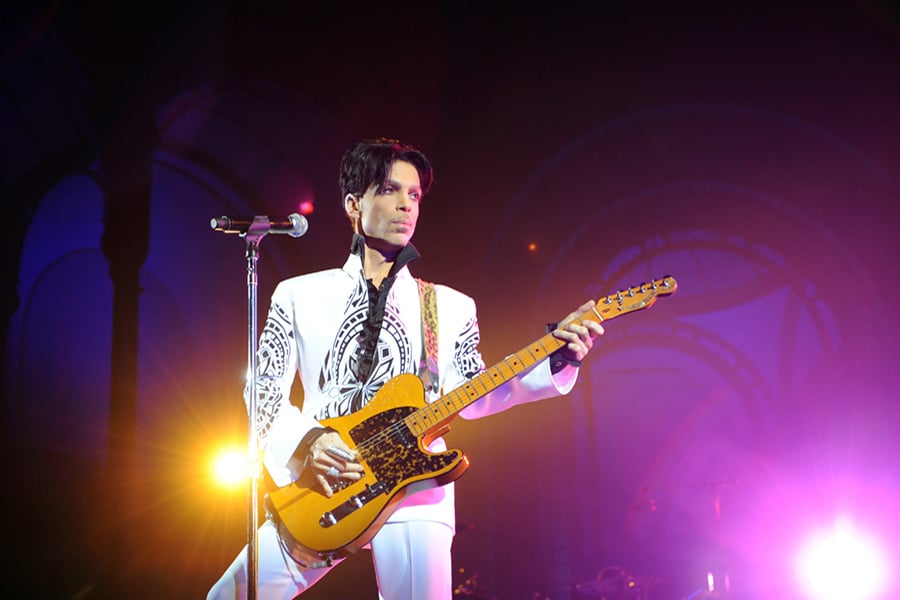The death of the virtuoso music artist Prince Thursday set off a countdown until the tax man takes a bite out of the star's estate.
Relevant parties must determine just how big Uncle Sam's bite will be. In the case of a musical superstar like Prince, though, such a task is a real challenge — borderline impossible, even, some say — and could spark a lengthy feud between the government and the estate. And the stakes are high, given that more than half the estate's value could be forfeited in tax.
Richard Behrendt, director of estate planning at Annex Wealth Management, calls it a “quirky valuation challenge” that is more art than science. The difficulty comes down to
placing a value on intangible assets, such as future royalties the artist may earn from a body of work.
“You're trying to look at present value of a future income stream,” said Charlie Douglas, board member of the National Association of Estate Planners and Councils and an Atlanta-based wealth adviser.
Prince reportedly amassed a fortune
worth around $300 million. Yet the divide between how the Internal Revenue Service and the Prince estate view the present value of future royalties could be huge, because with the death of a popular artist comes the likelihood of ballooning popularity and hence a ballooning valuation.
“For an artist, whether it's Picasso or Prince, death has an impact on their body of work. It's undeniable,” said Mr. Behrendt, who worked for 12 years at the IRS as an estate tax attorney. “The IRS will factor that in and say his death will blow the royalties off the charts, but his attorneys will say, 'You can't do that.'”
The estate of the late entertainer Michael Jackson understands this point all too well. It's currently
locked in a court battle with the IRS, which valued Jackson's name and image upon death at more than $434 million. The estate's estimate: $2,015.
Anecdotally, Mr. Behrendt says the IRS feels it got “burned” in the case of Elvis Presley's estate, because it didn't anticipate the phenomenon of a pop icon's increasingly popular catalog after death. Elvis generated $55 million in 2015 alone, second only to Michael Jackson's $115 million, according to Forbes'
list of top-earning dead celebrities.
“Now their eyes are open and they'll be putting their best people on these unique cases,” Mr. Behrendt said.
And, as a
New York Times article indicates, a “trove of Prince's recordings remains unreleased,” so any potential value derived from that remains a mystery.
Details on Prince's will and who will be executing his estate haven't yet emerged, but if he didn't have a will designating an executor (which is unlikely, given his reputation as being a good businessman, Mr. Douglas said) it would likely pass to his sister, Tyka Nelson. (Prince divorced twice and didn't have any surviving children.)
The estate has 15 months to file a federal estate tax return (nine months plus a six-month extension). The estimated federal estate tax is due on the nine-month date, though. (Because Prince was unmarried at death, he can't take advantage of the unlimited marital deduction, which would pass the estate to a spouse tax-free.)
The federal government assesses a 40% estate tax on estate values over $5.45 million. Minnesota, Prince's state of residence, is one of about 20 states that has a state estate tax as well — its top rate is 16%, likely making Prince's estate tax rate a whopping 56% total when including the federal rate.
Muddying the valuation challenge even more, however, are state rules governing an “inheritable right of publicity,” which protects individuals' identities from being used without permission. While California, for example, is a state that offers protections for both the living and deceased in this respect, Minnesota
doesn't appear to offer a post-mortem right.
“That would lessen the [estate] value, because you don't have enforceable rights of publicity,” Mr. Douglas said.
Ultimately, if the IRS determines the tax amount paid by the estate was undervalued after receiving the tax return, the IRS proposes a valuation increase, which parties could then attempt to negotiate, Mr. Behrendt said. If they can't agree, the issue goes the way of the Michael Jackson estate — that is, to tax court.







